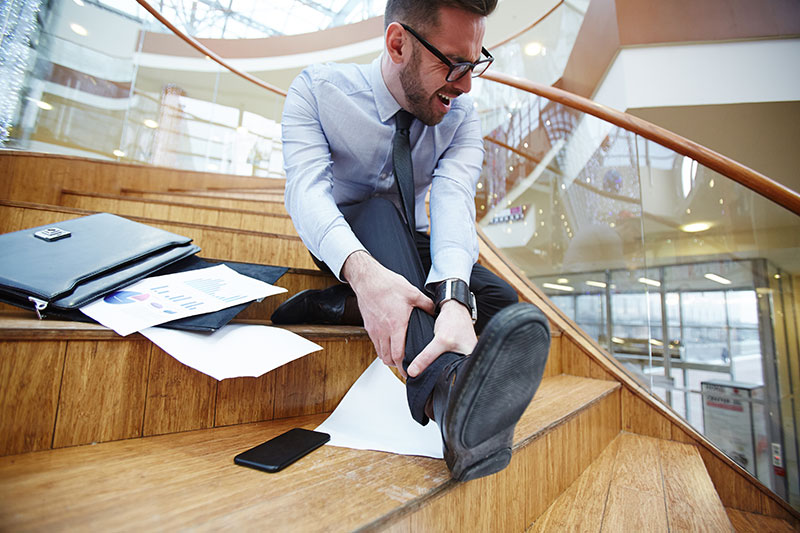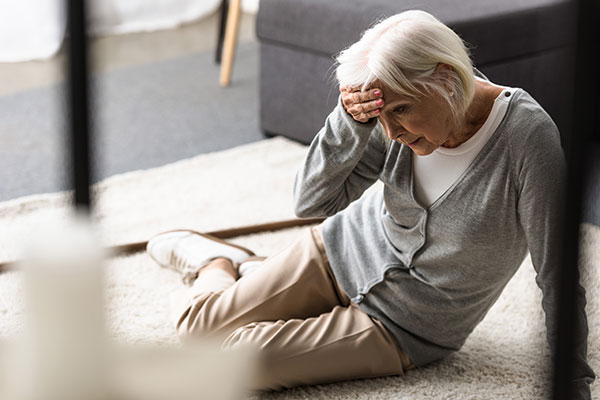

The Law Offices of A. L. Williams and Associates, LLC.
When a property owner fails to warn visitors of potential dangers, it can lead to accidents known as “slip or trip and falls”. Some victims suffer serious injuries due to these types of falls. In many cases, victims can recover compensation for injuries commonly called premises liability lawsuits.
Spills or tracked-in snow or ice should be promptly cleaned up. After floors are mopped, signs should warn visitors of wet floors. To win your case, you must be able to prove the property owner was negligent by leaving the floor wet. Simply stating the floor was slippery does not mean the property owner was negligent. The floor had to be unreasonably slippery. To prove the owner was negligent, you must prove that the floor was wet and reasonably slippery and the owner should have known that the floor was unreasonably slippery. You must have a good idea of why the floor was slippery before you leave the premises after your accident. Have a reasonable explanation of how long the substance was on the floor before you slipped and also notate if any warning signs were making you aware of the condition of the floor. Take photos of the scene and gather the contact information of any witnesses.
Types of substances on the floor that could make the floor slippery:
- Water or some other liquid
- Grease, Oil, or any type of lubrication
- Floor wax
- Ice or snow
- Foreign objects or food particles:
Merchandise stacked in aisles or supplies, equipment, trash, or debris that is left out represents tripping hazards.
Icy walkways
Property owners are responsible for removing snow and ice that accumulates on sidewalks, steps, stairs, parking lots, and other walkways. To file suit against a homeowner or renter, you have to prove the homeowner, company or landlord knew about the dangerous condition and failed to fix it or known about the dangerous condition.
Damaged floors and stairs
Property owners should not neglect torn carpet or mats, loose floor tiles, floorboards, or broken or lose stair treads or handrails. They can shift under a person’s weight and cause the person to fall.
Types of negligence to maintain proper flooring include:
- Defects to the stairs, stairwell, or stairway
- Dangerous stair risers
- Lose carpeting
- Damaged or faulty steps
- Defective railings or handrails, including the improper height of a handrail
Insufficient light makes it difficult to see stairway steps or obstacles or to recognize changes in a walking surface. Moving from a lighted space into a dark space can also cause a temporary vision loss that can result in a fall.
Damaged sidewalks
Walkways made uneven by cracks in paving stones or gaps between sidewalk segments pose a risk of tripping and falling. Property owners are responsible for the safety of patrons who are on their property and are expected to keep their property up to code. They have the responsibility to inspect all grounds of their property to ensure everything is safe and up to standards. It is important that you take photos of the defect as evidence and also measure the depth and width of the defective area.
Ditches and potholes
Holes, trenches, and other openings in grounds or parking lots and other paved areas should be filled, covered, or marked with warning signs or fencing.
- Private homes – Even homeowners have responsibility for the safety of their visitors. A slip-and-fall accident caused by a hole in the yard, slippery floors, or cluttered stairs at a house can cause injuries just a serious as they would be if they happened elsewhere.
- Retirement homes – The elderly living in nursing homes and other residential care environments are particularly vulnerable to serious injury in a slip-and-fall accident.
- Workplaces – Falls are among the most common occupational injuries. Federal and state regulations require employers to provide employees with training, safety equipment, and other safeguards to avoid falls and injuries at construction sites, manufacturing plants, offices, and other job sites.
- Restaurants – Customers and employees at fast-food and sit-down restaurants face hazards from spills, clutter, trash, and debris.
- Stores – Managers at grocery stores, malls, shopping centers, and other shops have a responsibility to ensure that spills are cleaned up promptly, aisles are not blocked by merchandise or other materials, and that signs warn visitors when custodial work has left behind wet and slippery floors.
- Theaters/arenas/stadiums – Large public performance areas typically have multiple levels connected by ramps, stairways, escalators, and elevators that represent a hazard if they are not free of clutter, well lit, and properly maintained. Bleachers and other seating that is not properly maintained can also cause falls that lead to injury.
- Parks and playgrounds – Thousands of children are injured every year in falls at playgrounds. But patrons of any age can be injured by falling down because of poorly maintained play equipment and benches or because of holes in walkways, lawns, athletic fields, and other play areas. Workers’ maintenance tools and equipment also create a hazard if they are left out.
.


